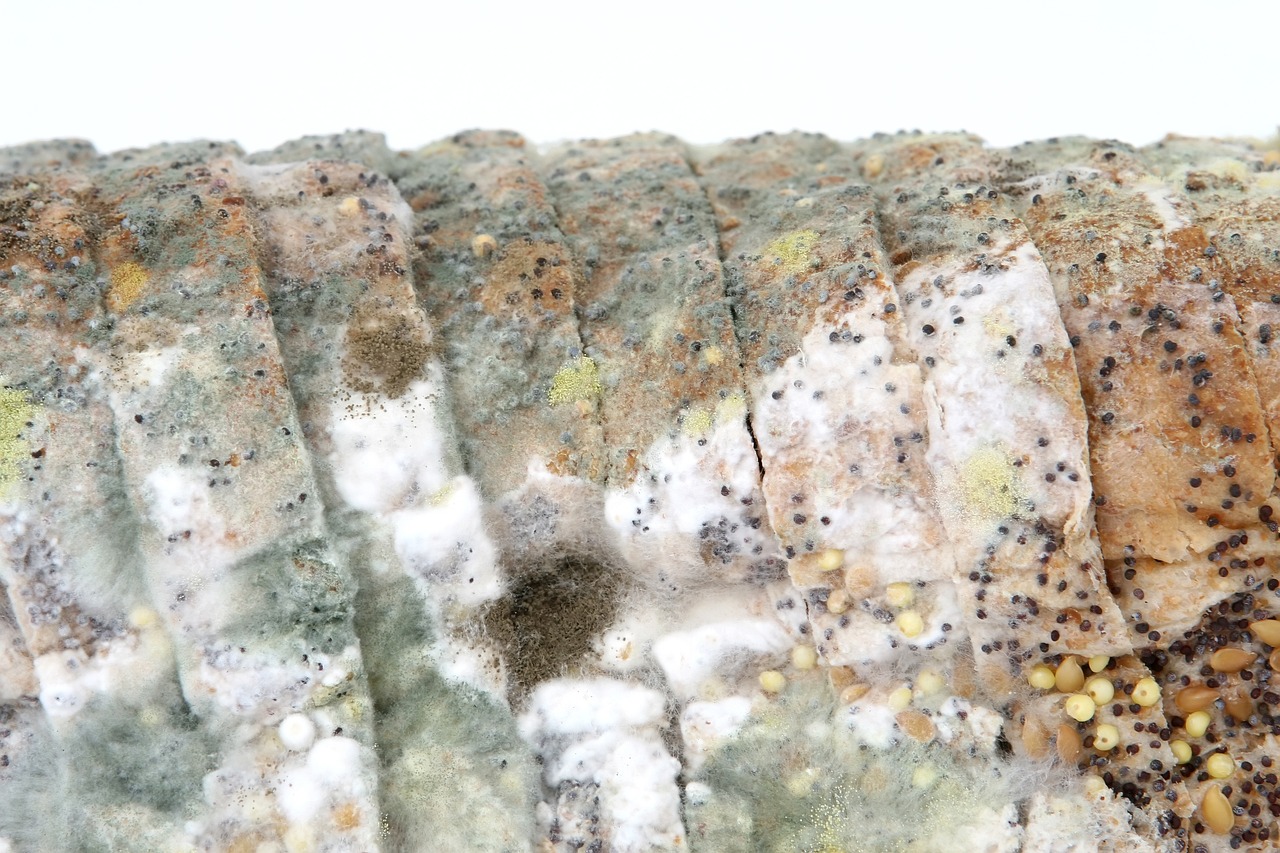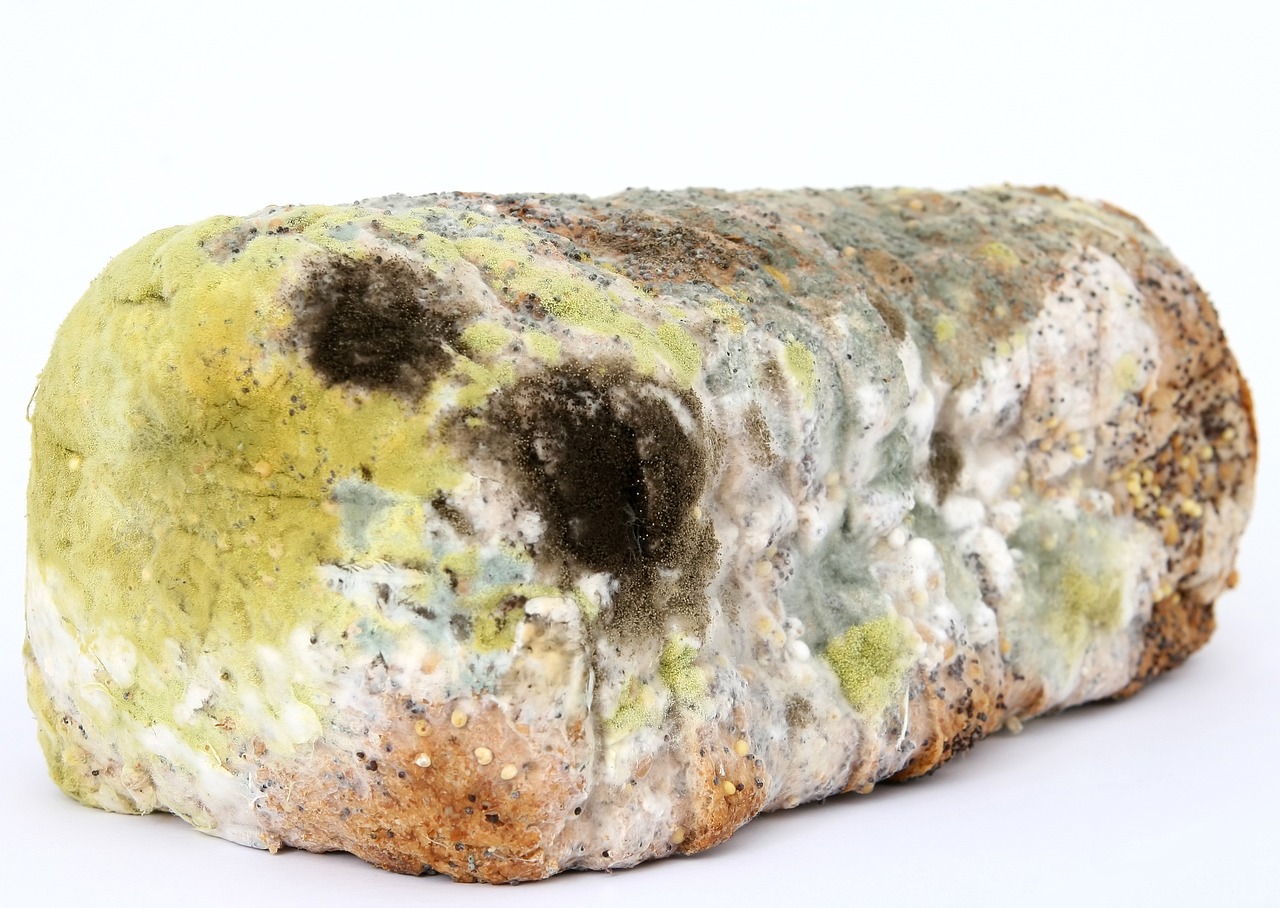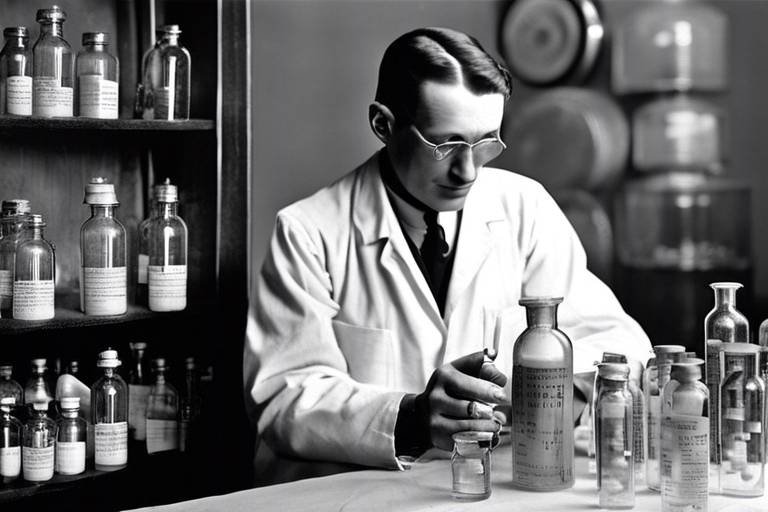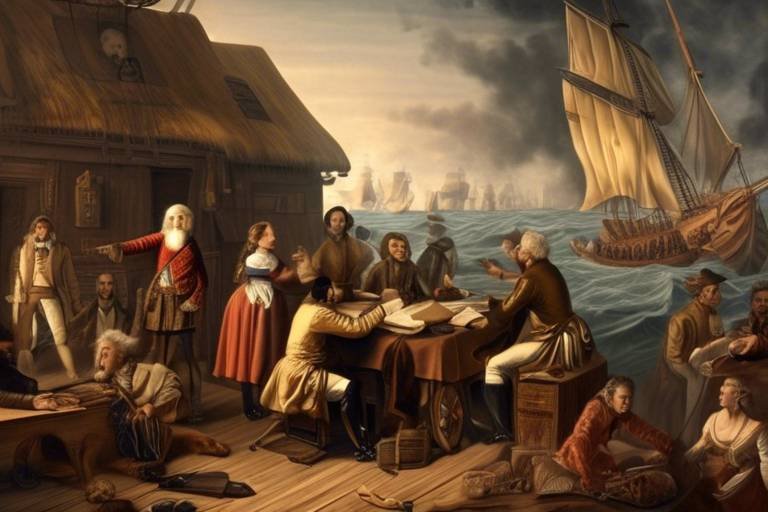The Discovery of Penicillin - Revolutionizing Medicine
Penicillin, the miracle drug that revolutionized modern medicine, holds a fascinating story of accidental discovery and groundbreaking impact. In the early 20th century, the world of medicine was forever changed by the serendipitous observation of Scottish scientist Alexander Fleming. This article delves into the remarkable journey of penicillin, from its humble beginnings in a laboratory to its widespread use as a life-saving antibiotic.

Background of Alexander Fleming
This article explores the groundbreaking discovery of penicillin and its impact on modern medicine, revolutionizing the treatment of bacterial infections and saving countless lives through its antibiotic properties.
Delve into the life and work of Alexander Fleming, the Scottish scientist credited with the accidental discovery of penicillin and his significant contributions to the field of microbiology.
Alexander Fleming was born in 1881 in Scotland and developed a keen interest in bacteriology and immunology early in his career. His research focused on studying the properties of bacteria and their effects on human health. Fleming's work laid the foundation for his groundbreaking discovery of penicillin, a discovery that would change the course of medical history.
Before his accidental discovery of penicillin, Fleming served as a medical officer in World War I, where he witnessed firsthand the devastating effects of bacterial infections on wounded soldiers. This experience fueled his passion for finding a solution to combat these deadly infections.
Throughout his career, Fleming's dedication to scientific inquiry and meticulous observation led to the serendipitous discovery of penicillin in 1928. While studying Staphylococcus bacteria, Fleming noticed that a mold called Penicillium notatum had antibacterial properties, paving the way for the development of the first antibiotic.
His discovery of penicillin marked a turning point in the field of medicine, setting the stage for the widespread use of antibiotics to treat bacterial infections and ultimately saving millions of lives.
Learn about the serendipitous circumstances that led to the discovery of penicillin in 1928, as Alexander Fleming observed the mold's antibacterial properties in his laboratory.
Explore how the mass production of penicillin during World War II revolutionized battlefield medicine, drastically reducing mortality rates among wounded soldiers and changing the course of medical history.
Discover the challenges faced in mass-producing penicillin and the collaborative efforts of scientists and pharmaceutical companies to harness its antibiotic properties for widespread medical use.
Examine the rise of antibiotic resistance and the ongoing efforts to develop new drugs and strategies to combat resistant bacteria, highlighting the importance of responsible antibiotic use.
Reflect on the enduring impact of penicillin on modern medicine, from its role in treating common infections to its influence on the development of new classes of antibiotics and medical practices.
Look ahead to the future of antibiotic research and the quest for novel antimicrobial agents, exploring the potential for new discoveries to address emerging health challenges and combat antibiotic-resistant bacteria.

Accidental Discovery of Penicillin
When it comes to revolutionary discoveries, the accidental finding of penicillin by Alexander Fleming in 1928 stands out as a prime example. This serendipitous event occurred in Fleming's laboratory, where he observed the mold Penicillium notatum inhibiting the growth of bacteria. Little did he know that this chance observation would lead to one of the most significant breakthroughs in medical history.
Imagine the scene: a petri dish left unattended, a forgotten experiment yielding unexpected results. It was in this moment of pure chance that the antibiotic properties of penicillin were revealed. The mold had created a clear zone around itself, where bacteria could not thrive, opening the door to a new era in medicine.
Like a spark igniting a fire, Fleming's accidental discovery set off a chain reaction of scientific advancements. The world was on the brink of a medical revolution, with penicillin at its forefront. This chance encounter paved the way for the development of antibiotics, transforming the way we treat bacterial infections and saving countless lives in the process.
The impact of this accidental discovery cannot be overstated. Penicillin's introduction marked a turning point in the fight against infectious diseases, offering a powerful weapon against bacterial pathogens. It was a game-changer, a breakthrough that reshaped the landscape of modern medicine and continues to influence healthcare practices to this day.

Impact on World War II
The impact of penicillin on World War II was nothing short of revolutionary. As the mass production of this life-saving antibiotic soared, battlefield medicine underwent a transformation that saved countless lives. Wounded soldiers, previously facing high mortality rates from bacterial infections, now had a powerful weapon in the form of penicillin to combat these deadly pathogens. The availability of penicillin on the front lines not only improved the chances of survival for soldiers but also accelerated their recovery, allowing them to return to combat more quickly. This breakthrough in medical treatment during wartime not only changed the course of individual battles but also influenced the outcome of the entire war.

Development of Penicillin as an Antibiotic
The development of penicillin as an antibiotic marked a significant milestone in the history of medicine. Following Alexander Fleming's initial discovery of penicillin's antibacterial properties, scientists faced the daunting task of mass-producing this groundbreaking drug to combat infectious diseases effectively.
One of the main challenges encountered in the development process was the need to find efficient methods for large-scale production. This required innovative approaches in fermentation and purification techniques to extract pure penicillin in quantities substantial enough to meet the growing demand for this life-saving antibiotic.
Collaborative efforts between scientists and pharmaceutical companies played a crucial role in advancing the development of penicillin as an antibiotic. Through shared knowledge and resources, researchers were able to refine production methods and optimize the drug's efficacy in treating a wide range of bacterial infections.
As the demand for penicillin grew, so did the need for standardized testing and quality control measures to ensure the safety and effectiveness of the antibiotic. This led to the establishment of regulatory guidelines and protocols that continue to govern the production and distribution of antibiotics to this day.
The development of penicillin as an antibiotic not only revolutionized the treatment of bacterial infections but also paved the way for the discovery and development of other classes of antibiotics. This ongoing research and innovation in antimicrobial agents are essential in the fight against evolving pathogens and antibiotic-resistant bacteria, underscoring the importance of continued investment in antibiotic research.

Overcoming Resistance to Antibiotics
Antibiotics have long been hailed as life-saving medications, but their effectiveness is increasingly threatened by the rise of antibiotic-resistant bacteria. The overuse and misuse of antibiotics have accelerated this alarming trend, leading to a global health crisis. To combat this growing threat, scientists and healthcare professionals are actively working on strategies to overcome resistance to antibiotics.
One approach involves developing new antibiotics that target different mechanisms of bacterial resistance. By diversifying the arsenal of available antibiotics, researchers aim to stay one step ahead of evolving bacteria. Additionally, efforts are underway to optimize the use of existing antibiotics through improved prescribing practices and dosage regimens.
Furthermore, education plays a crucial role in combating antibiotic resistance. Healthcare providers and the general public must be informed about the proper use of antibiotics, including the importance of completing the full course of treatment and avoiding unnecessary antibiotic prescriptions. This awareness can help slow the spread of resistant bacteria and preserve the effectiveness of existing antibiotics.
Collaboration between the healthcare sector, pharmaceutical industry, and regulatory agencies is essential in the fight against antibiotic resistance. By sharing knowledge, resources, and data, stakeholders can work together to develop sustainable solutions and policies that promote responsible antibiotic use.
Moreover, research into alternative therapies, such as phage therapy and immunotherapy, offers promising avenues for combating antibiotic-resistant infections. These innovative approaches harness the power of the immune system and bacteriophages to target and eliminate resistant bacteria, providing new hope in the battle against antibiotic resistance.

Legacy of Penicillin in Medicine
The legacy of penicillin in medicine is profound and far-reaching, shaping the landscape of healthcare since its discovery by Alexander Fleming. This revolutionary antibiotic has not only saved countless lives but has also paved the way for the development of modern antibiotics and medical practices.
Penicillin's impact on medicine can be likened to a beacon of hope in the darkness of infectious diseases. Before its introduction, bacterial infections were a significant cause of mortality, with limited treatment options available. However, the discovery of penicillin marked a turning point, offering a powerful weapon against harmful bacteria.
Furthermore, penicillin's success inspired further research and innovation in the field of antibiotics. Scientists and pharmaceutical companies began exploring new classes of antibiotics, expanding the arsenal of weapons against infectious diseases. This ongoing evolution in antibiotic development can be attributed to the groundbreaking discovery of penicillin.
Moreover, the legacy of penicillin extends beyond its direct impact on treating infections. It has influenced medical practices and protocols, emphasizing the importance of responsible antibiotic use to prevent the emergence of resistant bacteria. The careful stewardship of antibiotics, guided by the lessons learned from penicillin, is crucial in maintaining their effectiveness for future generations.
In addition, penicillin's legacy can be seen in its role as a cornerstone of modern healthcare. From routine surgeries to complex medical procedures, antibiotics like penicillin play a vital role in preventing and treating infections, ensuring the safety and success of medical interventions.
Overall, the legacy of penicillin in medicine is a testament to the power of scientific discovery and innovation. Its enduring impact continues to shape the way we approach infectious diseases and underscores the importance of continued research and development in the field of antibiotics.

Future Prospects in Antibiotic Research
As we look towards the future of antibiotic research, the quest for novel antimicrobial agents is more crucial than ever. Scientists and researchers are exploring innovative approaches to combat antibiotic-resistant bacteria and address emerging health challenges. The development of new antibiotics is essential to stay ahead of evolving pathogens and prevent the spread of drug-resistant infections.
One promising avenue of research is the investigation of alternative antimicrobial therapies, such as bacteriophages, peptides, and natural compounds. These novel agents offer potential solutions to combat antibiotic resistance and provide new treatment options for infectious diseases. By diversifying the arsenal of antimicrobial agents, researchers aim to enhance the effectiveness of treatment regimens and reduce the risk of resistance development.
Furthermore, advancements in technology, such as genomics and artificial intelligence, are revolutionizing the field of antibiotic research. By leveraging big data analytics and computational modeling, scientists can identify new drug targets, predict resistance mechanisms, and optimize antibiotic efficacy. These cutting-edge tools enable researchers to accelerate the drug discovery process and develop tailored therapies that target specific pathogens.
In addition to discovering new antibiotics, researchers are focusing on strategies to preserve the effectiveness of existing drugs. Antibiotic stewardship programs promote responsible antibiotic use in healthcare settings, aiming to minimize unnecessary prescriptions, prevent the spread of resistant bacteria, and optimize patient outcomes. By implementing evidence-based practices and guidelines, healthcare providers can ensure the sustainable use of antibiotics and preserve these life-saving drugs for future generations.
Frequently Asked Questions
- What is penicillin?
Penicillin is a group of antibiotics derived from Penicillium fungi, discovered by Alexander Fleming in 1928. It is widely used to treat bacterial infections due to its ability to inhibit the growth of bacteria.
- How was penicillin discovered?
Penicillin was discovered accidentally by Alexander Fleming when he observed that a mold, Penicillium notatum, produced a substance that killed a wide range of bacteria. This chance observation led to the development of the first antibiotic.
- What impact did penicillin have on World War II?
During World War II, penicillin played a crucial role in saving the lives of wounded soldiers by effectively treating infections that were previously fatal. The mass production of penicillin revolutionized battlefield medicine and significantly reduced mortality rates.
- Why is antibiotic resistance a concern?
Antibiotic resistance occurs when bacteria evolve to withstand the effects of antibiotics, making infections harder to treat. It is a major global health concern as it limits the effectiveness of existing antibiotics and poses a threat to public health.
- What is the legacy of penicillin in medicine?
The legacy of penicillin in medicine is profound, as it paved the way for the development of numerous antibiotics that have saved countless lives. Penicillin's impact continues to be felt in modern healthcare practices and the treatment of bacterial infections.



















